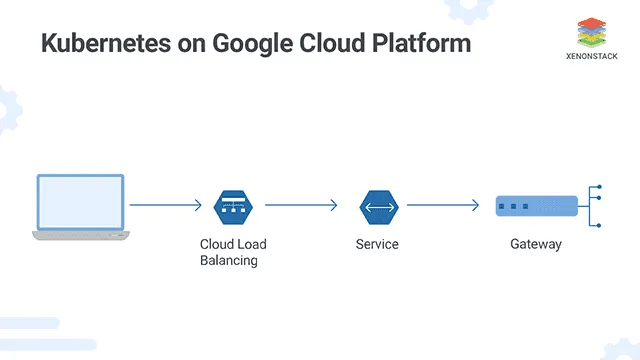Google Cloud Platform Kubernetes Services
Google Cloud is known as the home of Kubernetes as Google itself initially develops it. Kubernetes are released as an open-source in 2014, till now Kubernetes has turned into the most popular answer to handle containerized workloads anywhere. Kubernetes provide automated container orchestration and efficient machine management and also improves the reliability and decrease the time and resources attributed to DevOps. Kubernetes builds on 15 years of running Google’s containerized workloads and the valuable contributions from the big community of open source. Google donated Kubernetes as the founding project to the Cloud Native Computing Foundation(CNCF) from the evolution from the open-source community.This article will give an overview about deploying containerized applications with Google Kubernetes Engine (GKE)
Google Kubernetes Engine offerings
There are two services or we can the product of google are currently ruling the market –
Google Kubernetes Engine (Managed Kubernetes in the cloud)
Google Kubernetes Engine (GKE) is a managed and production-ready environment for deploying containerized applications. The Google kubernetes Engine(GKE) brings latest innovations of google in Developer productivity, resource efficiency, automated operations, and open-source flexibility to accelerate time to market.
Google’s Kubernetes engine launched in the year of 2015. It is built on Google’s experience of running services like Gmail and YouTube in a container for over 12 years.
Kubernetes Engine allows us to get up and run with Kubernetes in no time by illuminating the need to install, manage, and operate our own kubernetes cluster.
The Google Kubernetes Engine also has many features as-
Deploy a Wide Variety of Applications
Google’s Kubernetes Engine enables rapid application development and iteration by making it easy to deploy, update, and manage user’s applications and services. Kubernetes Engine isn’t just for stateless applications either, and we can also attach persistent storage and also can run a database in the cluster. It is also a provision and manages the underlying cloud resources automatically. The support of hardware accelerators also makes it easier to run Machine Learning, General Purpose GPU, High-Performance Computing, and other workloads that benefit from specialized hardware accelerators.
#insights #kubernetes
